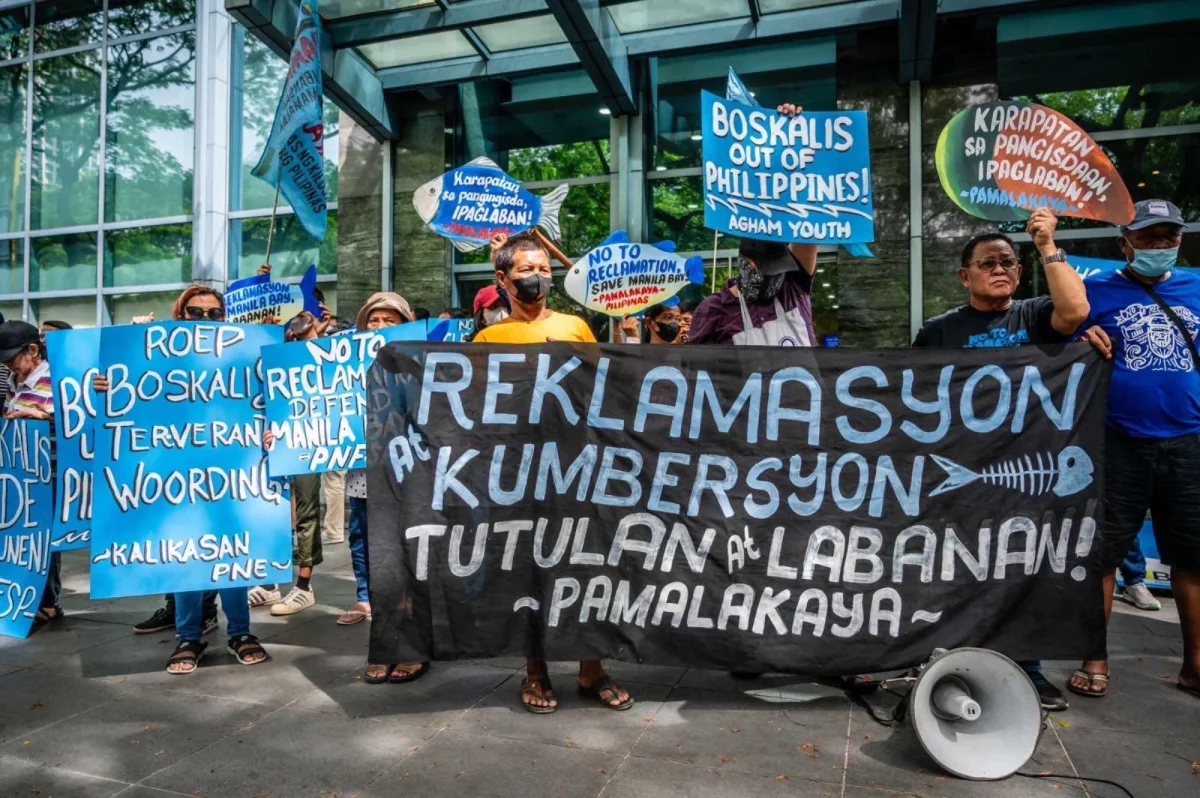Manila Bay: The battle far from over
By: C-Help Team
Fisherfolks group Pambansang Lakas ng Kilusang Mamamalakaya ng Pilipinas (PAMALAKAYA) and Kalikasan People’s Network for the Environment (Kalikasan) recently submitted a Letter of Inquiry with a Notice to Sue to the Philippine Reclamation Authority (PRA) and Department of Environment and Natural Resources (DENR) in connection with reclamation and seabed quarry projects in Manila Bay. The groups requested for information on how PRA and DENR, in issuing permits for the said projects, performed their mandate of balancing the protection of environment and national development.
According to PAMALAKAYA and Kalikasan, they wrote to the two agencies to inform them of the “distress” they are “experiencing in the face of adverse changes in our environment and socioeconomic conditions resulting partly from the cumulative and long-term impacts of seabed quarrying and reclamation activities in Manila Bay. Some of these impacts are:
- Significant decline in fish populations, depletion of marine resources, and an increase in invasive marine species;
- Coastal erosion and land, increasing the susceptibility of coastal communities to environmental hazards;
- Disruptions in our traditional livelihoods, resulting in drastic income loss,
- In many cases, involuntary displacement; and
- Rising water levels, among many others.”
Although there are many factors at play, seabed quarrying and reclamation activities significantly contribute to the degradation of Manila Bay. The groups say that a number of seabed quarry projects supply the raw materials of reclamation projects, hence, these activities are disastrously linked.
On the other hand, not too long ago, the Supreme Court issued a Continuing Mandamus on Manila Bay (G.R. 171947-48) directing 13 government agencies to clean up, rehabilitate, and preserve Manila Bay, and restore and maintain its waters to the level that’s fit for swimming, skin-diving, and other forms of contact recreation. Even though long overdue, on January 27, 2019, the DENR launched the program “Battle for Manila Bay” for the purpose.
With these, it seems that Filipinos, are still continuously fighting for their rights and “independence”, much like what transpired in the Battle of Manila Bay in the 1800s. Back then, the Filipinos fought for independence from Spanish colonialism. With U.S. Asiatic Squadron, led by Commodore George Dewey, the Filipinos defeated the Spanish Pacific Squadron commanded by Admiral Patricio Montojo. This resulted to the destruction of the Spanish fleet and the eventual declaration of Philippine independence on June 12, 1898. The subsequent war against US colonialism is another story.
After many decades, notwithstanding the victory attained against Spaniards and Americans, Manila Bay remains under siege. But this time from “development” at the expense of the people and environment.
Massive land reclamation that will, in total, create some 5,000 hectares of new land (an area as big as Caloocan City in the middle of Manila Bay) is killing the ecosystem upon which many Filipinos depend for livelihood, nutrition, and recreation.
Under Philippine laws, the PRA and DENR have the legal duty to ensure that reclamation and seabed quarry projects throughout the country do not have an adverse impact on the environment. Specifically,
Republic Act No. 7160, requires public consultation with, and in case of eviction, relocation and assistance to communities affected by seabed quarrying and reclamation.
Executive Order 74, Section 3 mandates a technical evaluation process for all reclamation projects, seeking advisory opinions from the NEDA and DENR.
In line with Section 4 of the same Executive Order, only reclamation projects with the necessary Area Clearance and Environmental Compliance Certificate (ECC) issued by the DENR can proceed. Subsequently, the PRA is tasked with closely monitoring and supervising project implementation, while the DENR ensures strict compliance with ECC terms and conditions.
Furthermore, under Section 6, all proposals for reclamation projects shall be evaluated by the PRA based on their cumulative impacts.
Under Section 45 of Republic Act No. 7942, a quarry permit may be cancelled for violations of the provisions of the Act or its implementing rules and regulations.
So, it seems the battle of Manila Bay is still far from over. And it needs patriotic Filipinos to continue and win the battle for freedom from environmentally destructive “development” activities.

